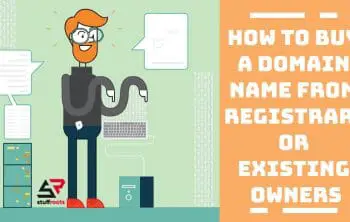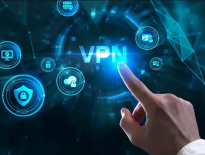In today’s digital world where everybody has freedom, the role of virtual private networks(VPN) has increased prominently. As individuals seek to secure their privacy, bypass censorship, or access restricted content, VPNs are their indispensable tool. However, across regions and networks, VPNs also face blocks and encounter barriers and restrictions that hinder their functionality.
While VPN blocks pose a challenge to online freedom users can employ various tactics to free from them. By understanding the reasons behind VPN blocking, and taking appropriate action, an individual can preserve privacy and have secure access to the information or content.
Understanding why VPNs are blocked and how you can find solutions for that is very crucial to maintaining freedom and security.
Why VPNs are Blocked?
VPN blocking has a variety of reasons, each with its own. But some of the most common reasons for VPN blocking are:
-
Government Censorship
It is the most overt form of censorship where they want to take control access of information that can be threatening to their authority. In such cases, VPNs become lifelines and allow users to bypass restrictions and commute freely.
-
Corporate Networks
Driven by concern over the security of the data and productivity, Employers may restrict VPNs to avoid unauthorized access.
-
Streaming Platforms
Streaming platforms impose restrictions on VPNs to enforce regional licensing agreements and prevent unauthorized access to geo-restricted content.
-
Prevention of Cybercrime
VPNs are also blocked because they can be used to perform illegal activities. So, to prevent from doing activities such as hacking, online fraud, spreading malware, and misusing them.
-
Network Security Concerns
VPNs also impose risks to security if used improperly.
-
Deterrence of Illegal Activities
VPNs are sometimes associated with activities such as terrorism, drug trafficking, or online piracy. So authorities may block them to prevent such cases from happening.
-
Bandwidth Management
Using VPN in public networks puts strain on the network and degrades network performance.
While using a VPN users should be aware of the reasons behind VPN blocks and navigate them accordingly, while respecting applicable laws and regulations of the place.
How to unblock blocked VPN
It can be a very challenging task but here are some methods which you can try to VPN unblocked
Use Different protocols
VPNs offer many protocols for connection you can try changing these protocols which may be effective to bypass those imposed blocks. For example, switching from OpenVPN to IPSec/IKEv2 or L2TP.
Stealth VPN
VPN services also offer stealth features. These features disguise VPN traffic make it look like regular internet traffic and help you bypass detection from censorship mechanisms or network administrators.
Try different services
If a server is blocked you can try connecting to a different server offered by a VPN service provider.
Use a dedicated IP address
Using a dedicated IP address provided by a VPN service provider may help you get access because these IP addresses are offered by a VPN service provided as an add-on feature.
Use VPN over SSH or SSL
Sometimes setting up a VPN over a Secure shell(SSH) or Sockets layer(SSL) bypass blocks method is harder to detect and block as it encrypts data with VPN traffic through a tunnel.
Contact VPN Support
You can take advice from a VPN service provider. They may give you some specific recommendations.
Try Different Devices or Networks
If you’re using a VPN on a restricted network e.g. School or Workplace, then you can try accessing from a different device.
Use a different VPN service
If all of this doesn’t work then you may try using an alternative service. Some other VPN service providers may have more access than others.
It is also very important to know that these methods may not be very effective in every case. So it is very important to use VPN services effectively and in compliance with the laws and regulations of the place.
Are there any Unblocked VPNs?
There are many unblocked VPNs such as
- Atlas VPN
- Proton VPN
- Hide. me
How to bypass VPN blocks
- Choose a reliable and secure VPN.
- Switching to another server or VPN.
- Using obfuscated servers or stealth services.
- Changing tunneling protocol.
- Changing encryption or port.
- Getting static/dedicated IP address.
- Switching to mobile data.
- Changing the DNS settings.
- Setting up a manual VPN connection.
Does VPN Unblock blocked websites?
A VPN changes your IP address so you can easily access blocked sites while connected to a VPN server.
VPN Blocker
It is a method in which you are not authorized to access VPN tunnels or you’re prevented from using them. It can be done due to govt. Censorship, or by an organization or school.
The most common ways to block VPN use are:
-
IP Blocking: The entire list of IP addresses connected with VPN are blocked.
-
Port Blocking: Firewall blocks specific ports that VPNs use.
-
Deep packet Inspection: Checks the data packets moving with the network traffic.
Best free Chrome VPNs for VPN unblock any website
-
CyberGhost
-
Browsec
-
TunnelBear
-
Hotspot Shield
-
Windscribe
Best VPNs for bypassing blocks
-
NordVPN
-
SurfShark
-
IPVanish
-
Express VPN
-
Atlas VPN
Conclusion
In conclusion, the blocking of VPNs presents a challenge to the security, privacy, and accessibility of users. Whether enforced by organization or government it hinders an individual’s ability to freely access information. However, users showed ingenuity in finding solutions to VPN unblock by exploring alternative technologies, and protocols and seeking assistance from VPN providers.
Nevertheless, it is essential to approach VPN unblock with responsibility and caution. Ultimately, VPNs remain undefeated tools for the user to protect their privacy. By understanding the reasons behind VPN blocking you can empower yourself to surf the digital world with security and confidence.
